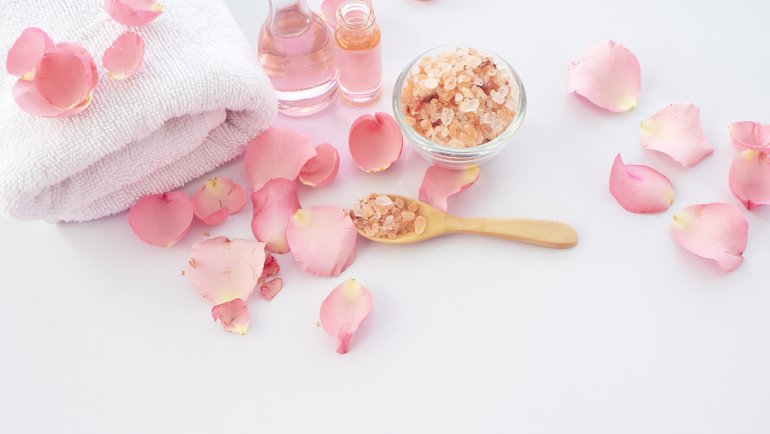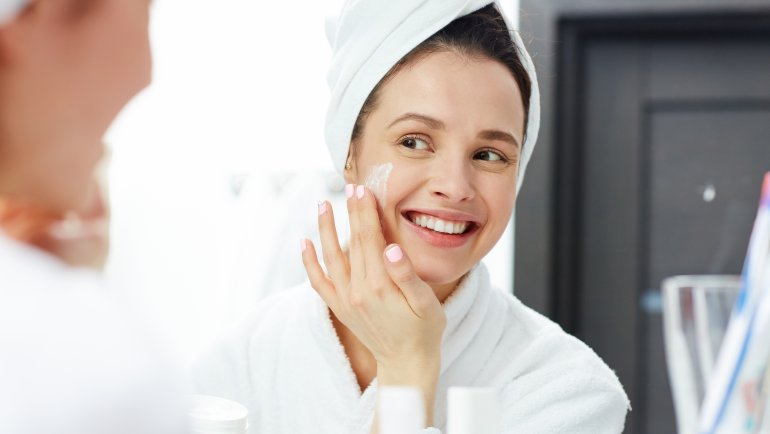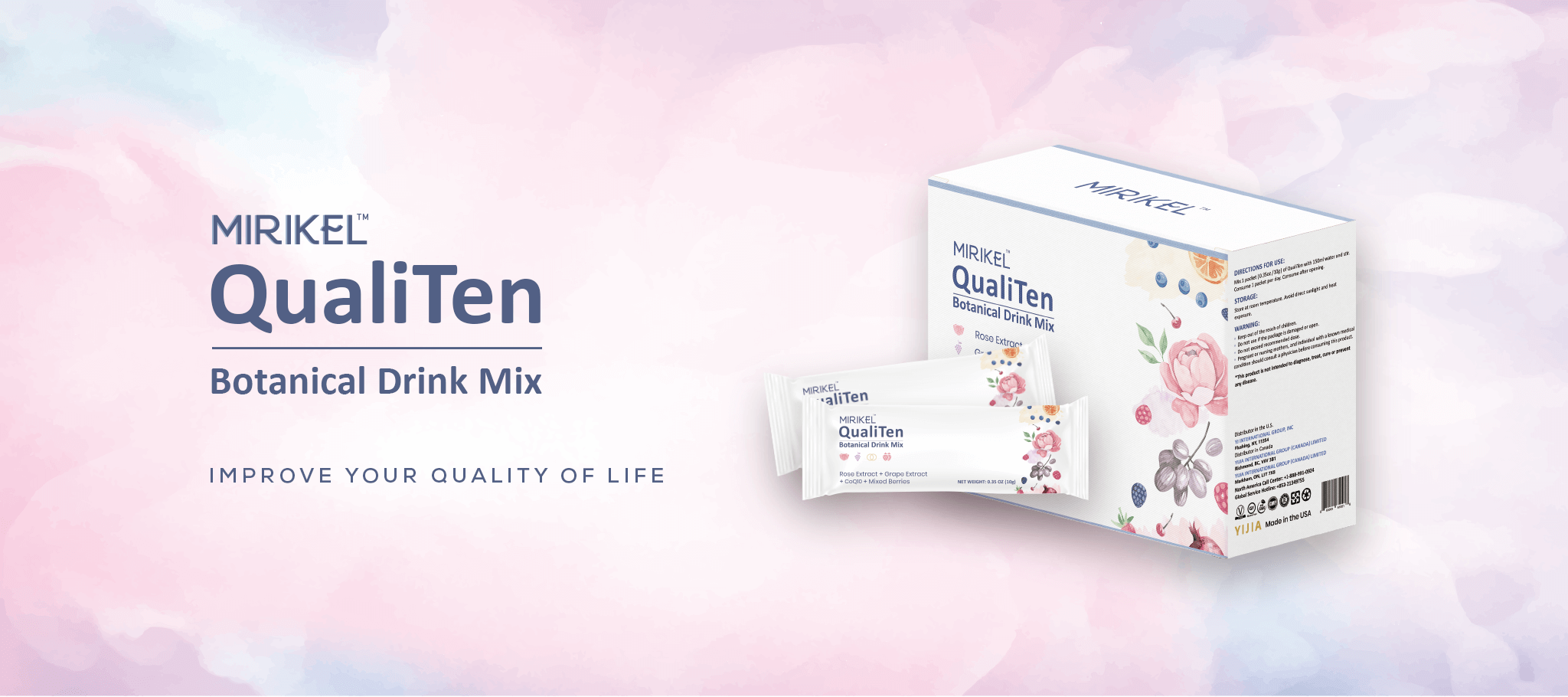Rose Extract: How the Flowers of Love Benefit Skin Health
Around the world, the rose is a symbol of love, romance, and appreciation. The intoxicating smell of roses fills the rooms of wedding receptions and anniversary celebrations. Beyond that, roses, when processed into rose extract, have been shown to have many benefits for your skin health.
In this article, we will tell you how rose extract can help boost your skin health and reveal your natural beauty.

What is Rose Extract?
After the rose has lost all its petals, most people will clip them off the bush. If they are in a vase in your home, people will normally throw them away. However, when you let the petals fall off, and the seeds swell and mature, they turn into rosehips, which are gems for skin beauty and health.
The rosehips are the most nutrient-filled part of the whole plant, and they are often discarded without a thought. Beauty scientists definitely do not throw the rosehips away. They process the rosehips to separate the water from the oil, vitamins, minerals, and plant components. Then they discard the solid parts. The result is a smooth and fragrant liquid called rose extract.
What are the Benefits of Rose Extract for my Skin?
Rose Extract Contains Antioxidant & Anti-inflammatory Components
Rose extract, especially from the rosa canina variety, is rich in polyphenols, flavonoids, and ascorbic acid, all of which are powerful and very well-studied antioxidants and antioxidant groups. Studies show that rose extract is effective in different concentrations for finding and scavenging free radicals that can cause cell damage.1 The antioxidant activity of rose extract is not only good news for your skin health, but it may also have a positive effect on inflammatory diseases, like Rheumatoid arthritis, when you take it orally. The anti-inflammatory effect could also reduce skin redness.1


May Help Brighten Your Skin
Many people aim to keep their skin from hyperpigmentation as it can help them retain a sense of youthfulness. Overexposure to the sun can, in fact, cause skin damage and increase the appearance of skin aging. Research shows that when rosehips are taken orally, they help to reduce skin cell pigmentation. This means that they help keep the skin whiter, fighting unwanted spots and darkening of the skin.2
Helps Fight Cellular Aging & Moisturizes Your Skin
The antioxidant components of rose extract help fight cellular aging. Research shows that the antioxidant components, including those called hexane fractions, will actually fight against chemicals that speed up cell aging.3 Rose extract is so powerful that lab studies showed that it lengthened the life span of mice.4
Another way in which rose extracts helps to reduce the appearance of skin aging is through the stabilizing effect of components in rosehips on the membranes of skin cells.5 In other words, rosehip products help protect the outer part of cells from being broken down. This keeps skin looking and feeling plump and supple, and it can help improve the appearance of the skin while reducing wrinkles.
If you want to take advantage of the rose extract for your skin beauty and health, you can turn to a supplement or skincare product that contains rosehips, rose extract, or an essential oil from the rose plant. You can also make extracts and essential oils yourself.

Caution: Never use essential oil on your skin without diluting it with a carrier oil like olive oil, coconut oil, or avocado oil. Never dilute it with water. For extracts and other rose products, follow the instructions on the label.
References:
-
Miraj, S. (2016). Phytochemical composition and in vitro pharmacological activity of two rose hip (Rosa canina L.) preparations. Der Pharma Chemica,8(13), 117-122. Retrieved from https://www.derpharmachemica.com/pharma-chemica/phytochemical-composition-and-in-vitro-pharmacological-activity-of-rose-hiprosa-canina-l.pdf.
-
Fujii, T., Ikeda, K., & Saito, M. (2011). Inhibitory Effect of Rose Hip (Rosa caninaL.) on Melanogenesis in Mouse Melanoma Cells and on Pigmentation in Brown Guinea Pigs. Bioscience, Biotechnology, and Biochemistry,75(3), 489-495. doi:10.1271/bbb.100702
-
Park, D., Jeon, J. H., Kwon, S., Shin, S., Jang, J. Y., Jeong, H. S., Joo, S. S. (2009). Antioxidative activities of white rose flower extract and pharmaceutical advantages of its hexane fraction via free radical scavenging effects. Biochemistry and Cell Biology,87(6), 943-952. doi:10.1139/o09-065
-
Ng, T. B., Gao, W., Li, L., Niu, S. M., Zhao, L., Liu, J., . . . Liu, F. (2005). Rose (Rosa rugosa)-flower extract increases the activities of antioxidant enzymes and their gene expression and reduces lipid peroxidation. Biochemistry and Cell Biology,83(1), 78-85. doi:10.1139/o04-100
-
Winther, K., Wongsuphasawat, K., & Phetcharat, L. (2015). The effectiveness of a standardized rose hip powder, containing seeds and shells of Rosa canina, on cell longevity, skin wrinkles, moisture, and elasticity. Clinical Interventions in Aging,1849. doi:10.2147/cia.s90092




